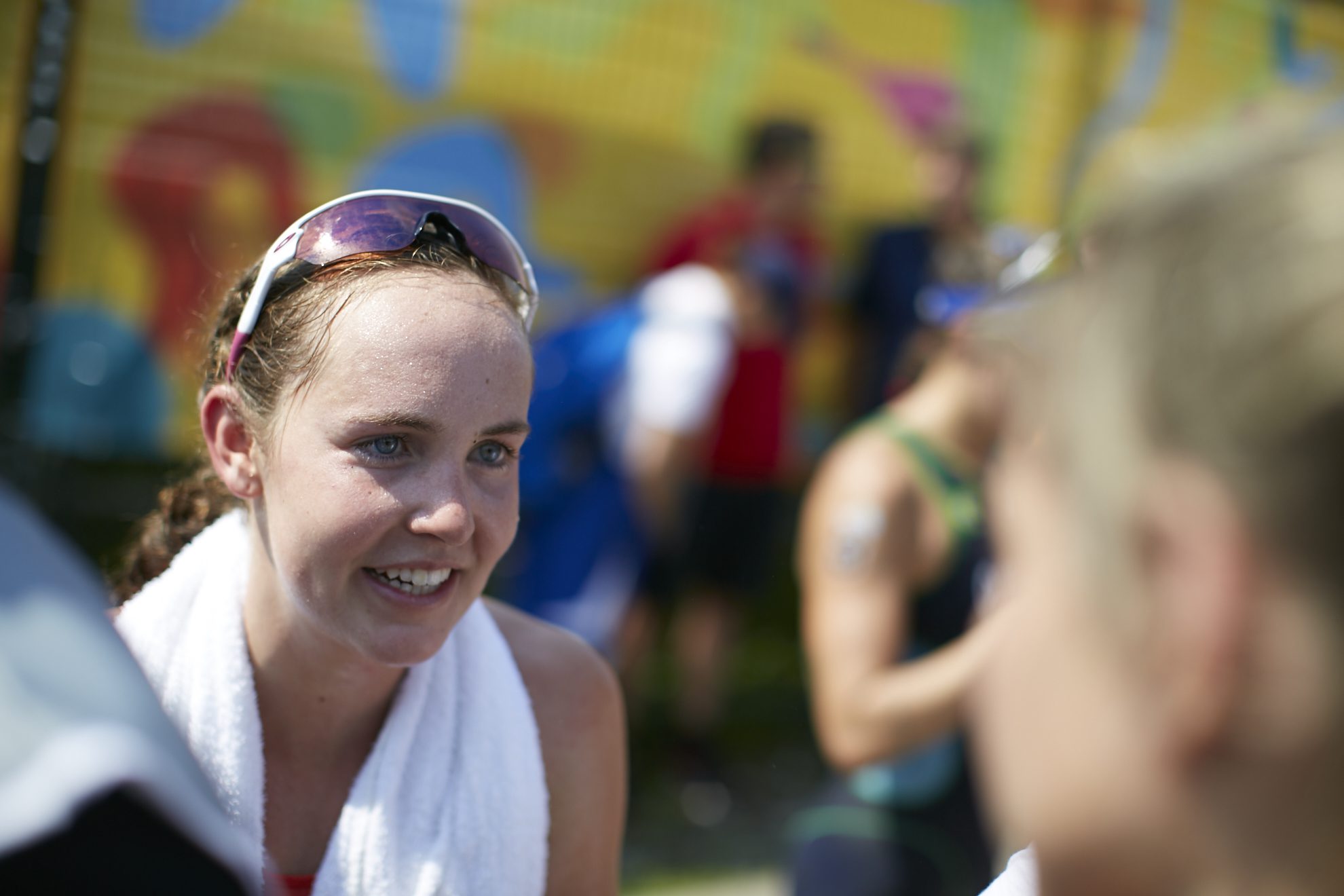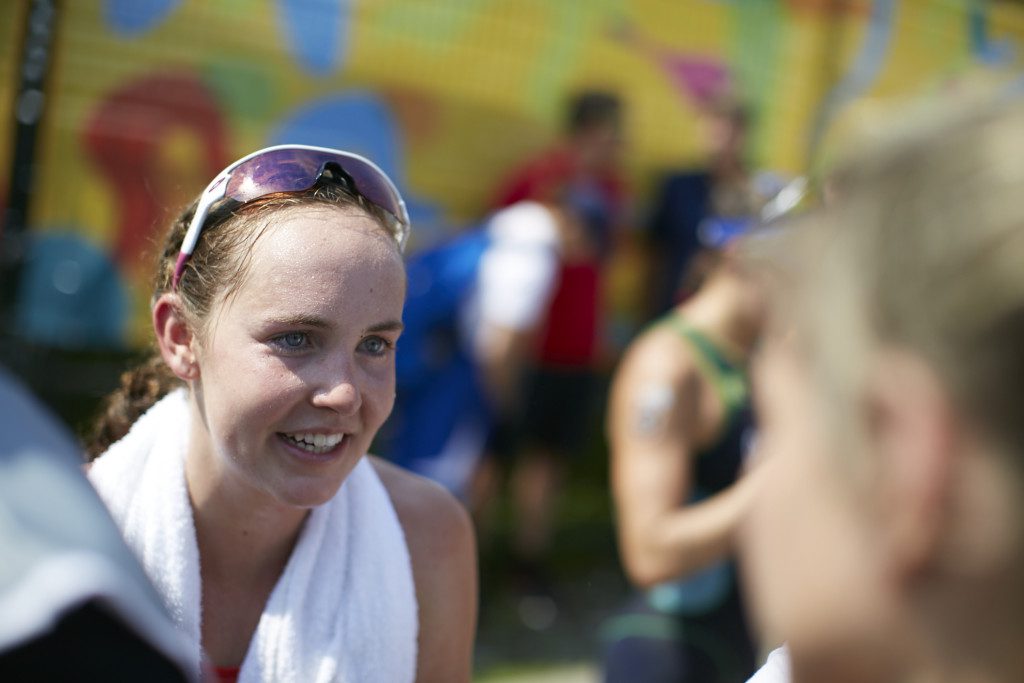Wisdom from an exhausted athlete: Ellen Pennock shares lessons from her career


— By Marcia Jansen
Ellen Pennock has learned from her mistakes and wants to share them with the younger generation
Ellen Pennock took a break from competition last year shortly after the 2015 Pan Am Games, her best race of the season. The 24-year-old felt burned out physically and mentally and thought she needed a month to recover. It took a little bit longer.
To many Pennock’s decision to take a break just after placing sixth in the Pan Am Games may have come as a surprise. But the Calgary native had been struggling for a while. She broke her collarbone in the Common Wealth Games in 2014 and suffered from a stress reaction in her tibia in the spring of 2015.
“Because of my injuries, I started the season with a backlog,” she says. “I was constantly chasing others and trying to keep up,” she says. “I felt rushed all the time. Ever since I started triathlon I was used to making a steady progression, but I guess I’d hit a plateau and it made me insecure. My sixth place in Toronto was magical and totally unexpected, but the WTS race in Hamburg a week later was very disappointing. I felt exhausted and my body just gave out on me. My body and mind needed a break.”
She thought she needed a month to recover, but it took a little bit longer. “I went back to Victoria, back to university and after a month I realized I needed more time off. So when the Olympics in Rio were happening I still wasn’t training. I worked at the Mountain Equipment Coop in Calgary and did a lot of trips in the mountains, which was refreshing. But never the less it was a hard time for me. Going to the Olympics was a dream and not seeing it fulfilled was hard.”
https://www.instagram.com/p/BFjdgHxybSE/?taken-by=ellie_p1992
Looking back, Pennock knows exactly where it went wrong.
“I have no regrets, I had so many adventures because of the sport and I’ve learned from my failures. But if I could do it over again, I would take it a little bit slower. Triathlon is a long term sport, there’s no need to rush if you’re young. My growth was exponential and because of that, I was competing in the big races too soon. You should check every level, to give your body time to adjust. I knew, in the back of my mind, that I was on the wrong track, but I wasn’t confident enough to stand up for myself.”
She would also be less hard on herself.
“I am a perfectionist and compared myself to others; I beat myself up too many times. And at the same time, I lost track of the reasons why I started triathlon in the first place. Racing should be fun, but I guess I was too focused on the results. What I’ve also learned is that I need some distraction in the offseason – that’s why I got back to my studies (ocean science) at the University of Victoria. I also know I don’t want to be away from home all the time. I lived in Australia in winter and in Spain during the season, but sometimes home is just the best place; surrounded by your support system and friends.”
Pennock wants to share her story because she hopes other athletes, especially young women, can learn from it.
“You’re at your peak around thirty, so keep seeing that bigger picture,” she wants to say to them. “Pace yourself. Just because you can train hard, it doesn’t mean you should. Find a balance, keep it fun, go to school, have lots of friends and keep growing and learning. And don’t forget to eat well. We think we have to resemble a certain body image. But it’s so important to eat healthy. There were certainly times I haven’t eaten enough when I trained hard. But your body needs energy for racing and training.”
She hasn’t stopped swimming, biking and running, but still hasn’t been back to serious training.
“Triathlon was a huge part of my life and I missed racing and the feeling of being fit. I do have aspirations to return to the sport, hopefully next season, but I am waiting until my body is ready.”
